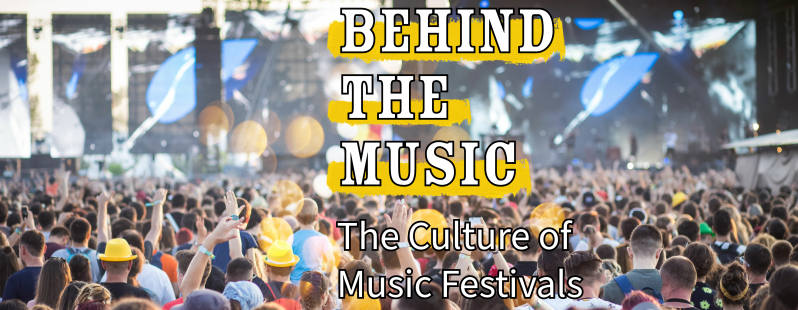
Music festivals have long been a significant part of the cultural landscape, embodying the spirit of collective experience and musical exploration. They are not merely events but phenomena that reflect and shape societal trends, youth culture, and musical evolution. Among them, Woodstock and Glastonbury stand as iconic symbols, representing the zenith of festival culture. This blog post delves into the history, cultural significance, and transformative role of these iconic music festivals, alongside their broader impact on the festival scene worldwide.
Woodstock: Three Days of Peace and Music
The Woodstock Music and Art Fair, held in August 1969 in upstate New York, remains one of the most extraordinary happenings in music history and a touchstone for the counterculture era. Originally conceived as a profit-making venture, it transformed into a free concert when attendees overwhelmed the facilities. Despite the logistical issues, Woodstock became emblematic of the 1960s' ideals of peace, love, music, and communal living.
Over three days, Woodstock gathered an estimated 400,000 people and featured performances from some of the era's most influential musicians, including Jimi Hendrix, Janis Joplin, and The Who. The festival was marked by a sense of unity and peaceful coexistence, challenging the prevailing narratives of a society fraught with conflict and division due to the Vietnam War and racial tensions.
The cultural impact of Woodstock cannot be overstated. It highlighted the power of music as a unifying force and the potential of youth as agents of change. Moreover, the festival set a precedent for future music events and became a blueprint for the ideal music festival, emphasizing not just the music but also the experience and the sense of community.
Glastonbury: A British Institution
Across the Atlantic, Glastonbury Festival has carved out its own legendary status. Founded by Michael Eavis in 1970 on his farm in Somerset, England, Glastonbury was inspired by the hippie movement and the counterculture of the 1960s, as well as the Isle of Wight Festival. It has since grown from a small gathering of 1,500 people to a sprawling event that hosts around 200,000 attendees each year.
Glastonbury stands out for its eclectic mix of music, arts, and its commitment to environmental causes and charitable work. Over the decades, it has showcased a diverse range of acts, from rock and pop to world music, jazz, and electronic, reflecting the evolving musical landscape. Iconic performances by artists like David Bowie, Beyoncé, and Adele have contributed to its mythos, making it a bucket-list event for music fans worldwide.
The festival is also noted for its unique ethos. The Glastonbury spirit is one of inclusivity, creativity, and sustainability, influencing the way people perceive music festivals and shaping the expectations for what a festival experience can be.
The Culture of Music Festivals
Woodstock and Glastonbury represent more than just the sum of their musical line-ups; they encapsulate the essence of festival culture. Music festivals have become a rite of passage for many, a space where people from diverse backgrounds come together to share in the joy of music and community. They are platforms for cultural expression, showcasing not only established artists but also emerging talents and fringe genres, fostering a sense of discovery among attendees.
Moreover, festivals reflect and respond to societal shifts. They have evolved from simple musical gatherings to multifaceted events that incorporate art installations, wellness activities, and forums for social and environmental activism. This transformation underscores the role of festivals as microcosms of society, where issues such as sustainability, inclusivity, and global citizenship are played out on a small scale.
Conclusion
The legacy of Woodstock and Glastonbury and their impact on the festival scene is profound. They have not only provided a template for how music festivals are organised but also demonstrated the potential of these events to inspire, unite, and mobilise. As we look to the future, the essence of these iconic festivals continues to influence new generations of events around the globe, ensuring that the spirit of music, community, and cultural exchange remains at the heart of the festival experience.
In an ever-changing world, music festivals stand as a testament to the enduring power of collective joy and artistic expression. They remind us that, despite our differences, we can come together to celebrate the universal language of music and the shared human experience. The story of Woodstock, Glastonbury, and the culture of music festivals is ongoing – a melody that resonates across time, continually evolving but always rooted in the fundamental desire for connection and celebration.
Add comment
Comments